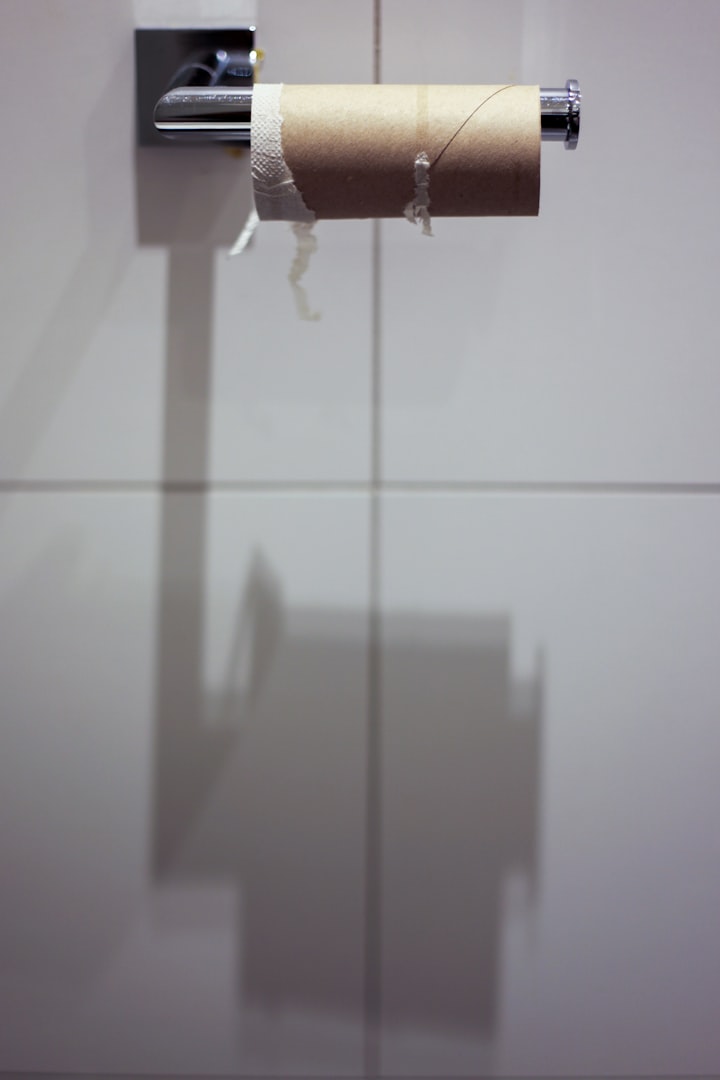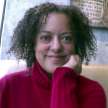Cancer: a story in many parts
Part 1

If there’s one thing about the world of work I hate, it’s meetings. They are pointless, forced and interminable and you can’t convince me otherwise. When I started working at a food bank last year, we had both huddles and meetings. I found the huddles to be more bearable if only because every huddle ended with a description of the free lunch that was to be served at the cafeteria. The chef would read the menu off his phone and it was always some variation on extreme comfort food: there was the turkey dinner with a side of three carbohydrates, two of which were usually covered in cheese, the burger lunch with French fries, the noodle lunch in which the greasy noodles were fried and piled high on a plate, the spaghetti and meatballs lunch smothered in cheese and on and on these oppressive lunches went.
At first the free comfort food was thrilling. I didn’t have to prepare a lunch which took a level of dedication and organization I couldn’t muster for a five-day work week. I could start the week with a nicely prepared sandwich, a piece of fruit and crudité, but somewhere around Wednesday, I lost the motivation and by Thursday or Friday I would open my kitchen cupboards root around and dig out a can of corn and a sleeve of crackers to throw in my backpack.
After about two weeks of partaking in these monstrous lunches, my stomach started to rebel. The next day I would end up in the bathroom with explosive diarrhea followed by blood on the toilet paper and blood in the toilet bowl.
It had to be the heavy meals. I wasn’t used to eating such rich food in the middle of the day. I tried to ask for less. I’ll have just chicken and vegetables, no mashed potatoes, please. The lunch lady sneered at me and gave me chicken, vegetables and extra mashed potatoes. I ate the chicken and vegetables but felt weird about throwing out mashed potatoes at a food bank. This minor adjustment did little to relieve my symptoms, the diarrhea and blood persisted.
I decided to forgo the free lunches altogether and tried to be disciplined about bringing my lunch from home. While my bowel movements became less volatile, there was still blood.
I emailed my doctor’s office and told him about my symptoms. He called me on the phone, Any change in your diet? he asked in his faint South African accent. I told him about the insanely large and rich lunches I’d been having.
“Well, your last colonoscopy did show that you had hemorrhoids, so I wouldn’t worry too much about it,” he said. That seemed reasonable to me, so I didn’t obsess over it. The bleeding continued, however.
At the beginning of January, I had a physical. When he came into the office, he was outfitted in a mask, face shield, gown, and gloves, but he sat down at his desk and began to take notes as he usually did and I forgot about the strangeness of the pandemic.
“So, what’s been going on? ”
I brought up the bleeding again.
“But I’m no longer working at the food bank, so I’m not eating the heavy lunches anymore, so the bleeding and diarrhea are not as severe.”
“But there is still blood when you go to the bathroom?”
I nodded.
He leaned back in his chair and exhaled.
“It sounds like your gut flora is out of whack. You should take a probiotic.”
And just to be safe I’ll get you to see a gastroenterologist, but it’s probably nothing.”
A few weeks later, the gastroenterologist called,
“Hello Daphne, this is Dr. T__ I understand you experienced some bleeding from your colon.”
I told him that yes, I had. Then I told him about how the heavy lunches irritated my stomach, frequently giving me diarrhea and blood in the toilet bowl.
Then I brightened, “I’m no longer working at that place, so the symptoms aren’t as intense.”
“Well, it seems like whatever it was has cleared up. I see you had a colonoscopy four years ago and you had hemorrhoids that’s probably what this is. I could give you a colonoscopy if you want, but I really don’t think it’s necessary.”
“Well, I still see blood, it’s just not as intense as it was this summer. I’ll take the colonoscopy.”
“Okay then. I’ll get my receptionist to arrange a date and she’ll be in touch.”
A few weeks later, I got the call and was emailed the instructions. I already knew I would have to drink endless gallons of Peglyte and it would be predictably awful.
The night before my procedure, I took out the 4-litre jug of Peglyte from the fridge and placed it on the table along with a straw, a juice glass and a timer. I had to down a glass every 20 minutes until 4 litres was gone. It is weird to face off against Peglyte, to feel defeated by this innocuous looking liquid, but that was exactly how I felt. After an hour and a half of drinking, I thought about cancelling my appointment. After two hours, I poured 2 cups of Peglyte down the drain just to move the level on the jug. The level seemed to stay the same. What was it about this nightmarish see-through liquid, this thick water that tasted like chemicals? After 3 and a half hours of whimpering to no one, “I can’t I can’t I can’t.” before plugging my nose and chugging a glass, I poured the rest of the contents down the sink. Fuck it I thought. I refuse.
And then for the next 5 hours I ran to the toilet. You know you’ve adequately cleansed your bowel when what comes out of you is clear. After 5 hours, what came out of me was clear-ish and it was all I was going to do.
The next day, I took the subway downtown and walked to the endoscopy clinic. I saw a restaurant across from the lab. I hadn’t eaten in 24 hours and I was weak, headachey and fixated on food. I resolved to go to the restaurant and order French fries after my procedure. I took the elevator up to the clinic. I signed in at the front desk. The receptionist was pleasant and polite, but I couldn’t muster the energy to be courteous, so after she handed me back my health card, I just sat sullenly and waited to be called.
When I was finally admitted, I changed into a gown and put all my clothes under the gurney in a large see-through bag. I lay down and was wheeled into examination room where I met the gastroenterologist who I had spoken to on the phone. He looked down at me and I could see in his face how young he was.
“How are you?” he asked.
“Oh fine,” I mumbled.
“How was the prep?” he asked knowingly.
He probably said this to everyone undergoing a colonoscopy.
“It was awful,” I said.
He smiled.
“Are you still having diarrhea?” he asked me.
“Not as much as before,” I replied.
He nodded reassuringly.
“You’ll be fine. This will all be over in 15 minutes.”
The nurse shook me awake and I opened my eyes and said, “I want French fries.” She wheeled me into a curtained off area and told me to get dressed and wait for the doctor. I dug my clothes out of the big plastic bag under the gurney and sat on the bed. I took out my phone and opened the camera to check how I looked. I looked all right, just tired. I noticed that there was a lot of blood on the sheet and though I was curious, I wasn’t worried.
The same doctor who told me 20 minutes prior that everything would be fine in a calm voice, burst through the curtains. He was holding a piece of paper and started: “We found a large mass…”
I felt bad. I thought he was scolding me about not cleaning out my bowels well enough.
I looked up. I was going to apologize.
“You have cancer.”
“Well what stage is it?” I asked.
“It’s too early to tell right now, but I’ve rushed the biopsy to Dr. P_. I’m VERY concerned. You should hear back from me by Thursday.”
He gave me the piece of paper he had in his hand and left as dramatically as he came in. I put my arms through my backpack straps slowly trying to understand what had just happened.
I walked out to see my friend Julie who was there to pick me up to make sure I got home okay.
I had thought that we would go across the street, eat French fries and then uber back uptown. But I had no appetite. I gave Julie the paper the doctor gave me which had a crude drawing of a colon with the doctor’s pen marks of where the mass was. I looked at her and said, “He says I have cancer.” Julie looked at me sympathetically and studied the drawing. What came out of her mouth next was undoubtedly meant to be kind and reassuring, but I heard none of it.
We took the subway home. I didn’t know what to say. My brain was in overdrive, but no words came out of my mouth.
When I got home, I padded around my apartment opening and closing cupboard doors. Cancer? Really? I sat at my kitchen table as if I were at a café waiting for a friend. After a while I quietly got ready for bed. I remembered an episode of This American Life in which the comedian Tig Notaro does a set just after she finds out she has been diagnosed with breast cancer. I listened to it until I fell asleep.
END OF PART ONE
About the Creator
Daphne Faye
I love to write personal essays. Some are humorous; others are more serious, but they're always heartfelt. I'm also an avid photographer, check me out on Instagram @molelovesbokeh






Comments (1)
It’s definitely a concern and we all dread that C word.